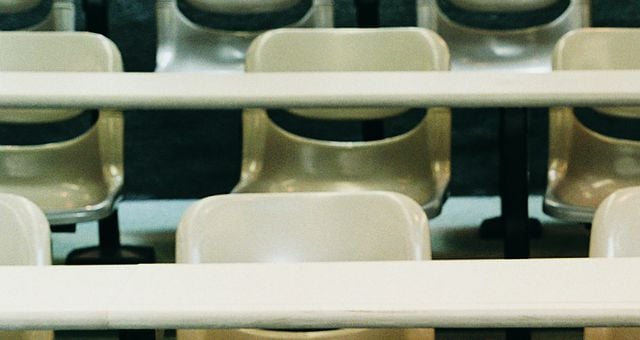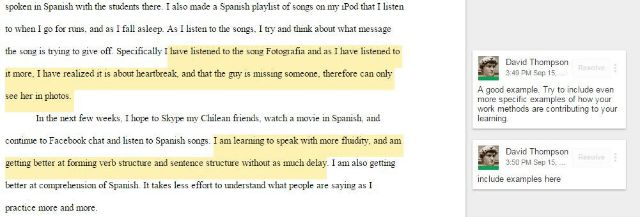Most faculty now recognize the importance of students being able to direct their own learning. It’s what positions them for a lifetime of learning. And most faculty also recognize that many of our students are more dependent than self-directed. They want the teacher to make most, if not all, of the learning decisions for them. “What do you want in this assignment?” “How long should it be?” “Do I need to have references?” “What do I need to know for the test?” “How many homework problems should I do?” All these are questions self-directed learners ask and answer for themselves.
Read more ›CURRENT ARTICLE • December 03
OTHER RECENT ARTICLES
 Many college courses today incorporate some form of group assignment, such as a project, presentation, or a collaborative paper or report. However, instructors are frequently met with resistance from students who don’t like working in groups and don’t want their grade to be affected by peers who may not pull their weight. Nonetheless, research shows that there are many benefits to group work, in terms of both active learning and expanding teamwork skills. Other benefits include better communication skills, critical-thinking abilities, time management, problem-solving skills, cooperation, and reinforcement of knowledge (Forrest & Miller, 2003; Hammar Chiriac, 2014; Kilgo, Ezell, & Pascarella, 2015). Furthermore, since the use of work groups and teams in the workplace has increased, it is important for students to have prior experience in group work. Certainly, a collaborative attitude and the ability to work with others are important at most places of employment.
Many college courses today incorporate some form of group assignment, such as a project, presentation, or a collaborative paper or report. However, instructors are frequently met with resistance from students who don’t like working in groups and don’t want their grade to be affected by peers who may not pull their weight. Nonetheless, research shows that there are many benefits to group work, in terms of both active learning and expanding teamwork skills. Other benefits include better communication skills, critical-thinking abilities, time management, problem-solving skills, cooperation, and reinforcement of knowledge (Forrest & Miller, 2003; Hammar Chiriac, 2014; Kilgo, Ezell, & Pascarella, 2015). Furthermore, since the use of work groups and teams in the workplace has increased, it is important for students to have prior experience in group work. Certainly, a collaborative attitude and the ability to work with others are important at most places of employment.
 A little before the middle of each semester, I ask my students to fill out an anonymous one-minute paper to indicate what they would like to “stop, start, or continue” in my course. I like to think I am a good teacher, and good teaching, it is generally acknowledged these days, asks us to reflect on our teaching, scrutinize our teaching, and challenge our assumptions about teaching. We’re also encouraged to ask for and be responsive to student feedback.
A little before the middle of each semester, I ask my students to fill out an anonymous one-minute paper to indicate what they would like to “stop, start, or continue” in my course. I like to think I am a good teacher, and good teaching, it is generally acknowledged these days, asks us to reflect on our teaching, scrutinize our teaching, and challenge our assumptions about teaching. We’re also encouraged to ask for and be responsive to student feedback.
Early in the semester, I assigned my first-year students a blog post as a low-stakes “read and respond” writing assignment. Written by psychiatrist Samantha Boardman, the article “Stop This Habit Today!” focused on the habit of beginning and ending our days with technology. As you can probably tell from the title, Dr. Boardman is opposed to this habit, particularly when it interferes with things like sleep and real-world interaction.
Read More ›As college faculty, we put tremendous pressure on ourselves to talk. We want to cover the course content and thoroughly explain our assignments. We want to sound smart, share what we know, and communicate convincingly about the work of our disciplines. Our students assume we are experts, and we don’t want to disappoint them. All this amounts to teacher-centered pressure that confuses talking and teaching.
Read More ›Engaging students in class conversation is not always an easy task. Even though we may make class participation part of their final grade, stress its importance in the syllabus, and give subtle (and not so subtle) reminders of this throughout the semester, there are always days when students simply do not want to participate in the class discussions.
Read More ›Last year the Augustana Campus of the University of Alberta ran a pilot study to consider the efficacy of using e-portfolios to deepen students’ learning. We were interested in developing a structure that would enable us to determine how well our students were learning Augustana’s core skill requirements (writing, speaking, critical thinking, and information literacy).
Read More › Haven’t we all entertained that inquiry from an absent student, “Did I miss anything important?” The question is poorly phrased, but I recognize that it’s usually well-intentioned. The student is concerned about what he or she missed. My concern is about those continued absences and how to allow the student to make up for a missed class. The first day of class I read a Tom Wayman poem (www.loc.gov/poetry/180/013.html) that gets at the phrasing of the question and what the student misses by being absent.
Haven’t we all entertained that inquiry from an absent student, “Did I miss anything important?” The question is poorly phrased, but I recognize that it’s usually well-intentioned. The student is concerned about what he or she missed. My concern is about those continued absences and how to allow the student to make up for a missed class. The first day of class I read a Tom Wayman poem (www.loc.gov/poetry/180/013.html) that gets at the phrasing of the question and what the student misses by being absent.
There’s an assumption that students arrive at college with some idea of how to study. They have, after all, completed four years of high school prior to their arrival, earning a seat in a college classroom.
Read More ›This summer I am reading Linda Nilson’s book Creating Self-Regulated Learners: Strategies to Strengthen Students’ Self-Awareness and Learning Skills, which offers instructors a wealth of assignments and activities to help students grow their self-regulation and metacognitive abilities. Teaching students how to learn well on their own and to evaluate that learning is a goal I have been pursuing for the past few years, and I am convinced that occasional, brief self-assessment exercises can help college students perform better as well as understand the learning process.
Read More ›





